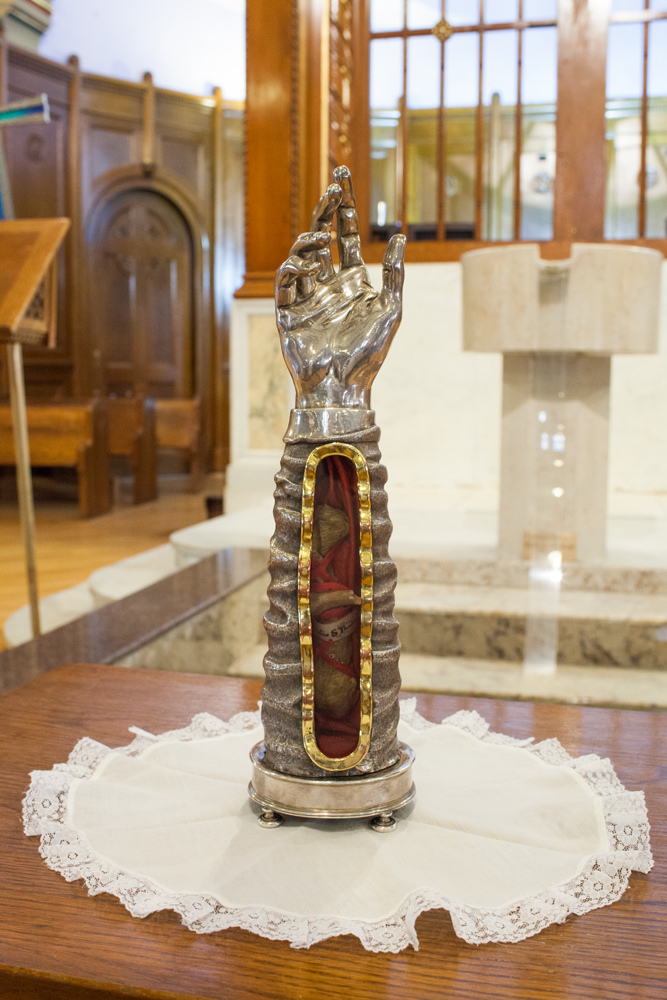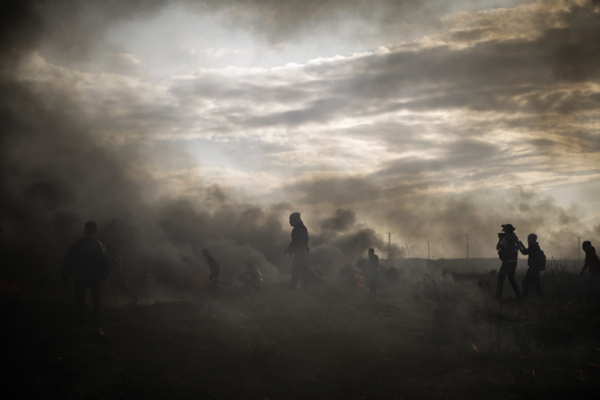President Donald Trump’s decision to formally recognise Jerusalem as the capital of Israel is adding “fuel to the fire” to conflicts in the Middle East and runs counter to international agreements, a senior Vatican diplomat has said.
In an interview with The Tablet, Archbishop Silvano Tomasi, a former Holy See envoy to the United Nations in Geneva, stressed the only chance of peace was a renewed effort to find a two-state solution for Israel and Palestine which respected global agreeme
“The International community sees Jerusalem as both a religious and a political centre that transcends its role for only one State,” he said. “The unilateral decision taken by the present administration of the United States deviates from the accepted position of the International community and becomes a source of tension in a region where conflicts already abound.”
The United States’ move has sparked some of the worst violence in the region for months and inflaming an already volatile situation where Palestinians want East Jerusalem to be recognised as their capital.
Jordan is the West’s closest ally in the Middle East and King Abdullah II and according to Fr. Rif’at Bader, director of the Catholic Centre for Studies and Media (CCSM) in Jordan, the meeting between the Pope and the King will cover Trump's Jerusalem decision. The pair have met twice before: once in the Vatican soon after Francis’ 2013 election and the other in Jordan during the papal visit to the Holy Land in 2014.
During that trip the Pope showed sympathy to the Palestinian cause by stopping his popemobile in front of Israel’s security wall on Jerusalem’s west bank. He later invited then Israeli president Shimon Peres and the President of Palestine, Mahmoud Abbas to the Vatican to pray and plant an olive tree for peace in the Vatican gardens.
During his papacy, Francis has won the respect of the Muslim world with his refusal to equate terrorism with the faith of Islam; visiting Egypt and praising Jordan for its generous welcome of Syrian refugees.
It was following a phone call from President Abbas earlier this month that the Pope publicly expressed his concern about President Trump’s decision which will see the United States moving its embassy to Jerusalem.
The Holy See has always tried to act as an honest broker in urging peace in the Middle East while the Pope has shown he is willing to help mediate conflicts across the globe.
Archbishop Tomasi, who is the longest serving Vatican ambassador to the UN’s Geneva office, said that the decision by the United States “assumes a practical and symbolic meaning that runs against the United Nations' decisions.” Alongside his extensive diplomatic experience, the 77-year-old Italian prelate is a migrants expert who is currently working at the new Dicastery for Promoting Integral Human Development.
“The complexity of the Middle East make peace appear as an illusion, but discouragement is not the answer. Rather, the huge suffering that regional conflicts inflict on refugees, internally displaced people, on the families of the hundreds of thousands of victims who lost their lives, call the Church and the international community to a renewed dialogue,” he stressed.
“The long standing position of the Holy See is that of having in the Holy Land two States, independent, respectful of each other, with well defined borders and open to co-operation. In fact, the Holy See acts in the international context on the base of some fundamental juridical and humanitarian principles shared by all States and also it reflects its specific and unique nature and the policies it promotes.”
He went on: “a look at the demography of the region seems to indicate as in the interest of all parties to accept the internationally supported position of two states.”
Archbishop Tomasi also warned about “huge arms deals” worth billions of dollars recently signed between the United States and Saudi Arabia stressing that alliances in the region should be entered in “for cooperative action that would benefit everyone” rather than "keeping open the circle of violence.”
On a more positive note he cited the recent visit of Cardinal Béchara Boutros Raï, Patriarch of the Maronites, to Saudi Arabia, which made him the highest ranking Catholic representative to visit the country.
Christopher Lamb meets Archbishop Tomasi:
1. What is your response to the decision by the United States to transfer their embassy to Jerusalem and recognise it as the capital of Israel?
The International community sees Jerusalem as both a religious and a political center that transcends its role for only one State. The United Nations Organization has repeatedly and in different ways stated the uniqueness of Jerusalem. The unilateral decision taken by the present Administration of the United States deviates from the accepted position of the International community and becomes a source of tensions in a region where conflicts already abound. Pope Francis is also clear on this issue. He says: «Gerusalemme è una città unica, sacra per gli ebrei, i cristiani e i musulmani, che in essa venerano i Luoghi Santi delle rispettive religioni, ed ha una vocazione speciale alla pace» (“Jerusalem is a unique city, sacred for Jews, Christians and Muslims, who venerate the holy places of their respective religions, and has a special vocation for peace.) For this reason He has invited all of us to pray so that this identity may be preserved and strengthen because the Middle East and the entire world would benefit from preserving the status quo and calls for wisdom and prudence to prevail for the sake of peace.
2. What is the Holy See’s approach to the Middle East and how peace can be achieved in the region?
The long standing position of the Holy See is that of having in the Holy Land two States, independent, respectful of each other, with well defined borders and open to cooperation. In fact, the Holy See acts in the international context on the base of some fundamental juridical and humanitarian principles shared by all States and also it reflects its specific and unique nature and the policies it promotes. The social doctrine of the Church, expressed in encyclicals like Laudato Si of Pope Francis or Populorum Progressio of Paul VI or Laborem Exercens of St. John Paul II, as well as in other documents and declarations, provides guidelines for action in the public arena. The pursuit of the common good, a sense of empathy and compassion, concrete solidarity, inclusiveness an dialogue, these are all values the Holy See promotes and that imbedded in its service. Without a practical acceptance of such values I don’t see how peace may be reached in the Middle East.
On August 17, 2017, the Holy Father instituted a new Dicastery, Service for Integral Human Development. This new Curia Department It takes up the solicitude of the Church for justice and peace, for migrants and refugees, health and the care of creation, maritime workers, disarmament and human rights. Peace is a gift from God, but it engages us every day to pursue it and preserve it. The complexity of the Middle East make peace appear as an illusion, but discouragement is not the answer. Rather, the huge suffering that regional conflicts inflict on refugees, internally displaced people, on the families of the hundreds of thousands of victims who lost their lives, call the Church and the International community to a renewed dialogue.
3. Do you still have faith in the “two state solution”?
There seems to be no other acceptable alternative to the two States solution. As I mentioned before, the decision to move the American embassy to Jerusalem assumes a practical and symbolic meaning that runs against the United Nations decisions and adds fuel to the fire of existing conflicts. A look at the demography of the region seems to indicate as in the interest of all parties to accept the internationally supported position of two States. We need to pray for wisdom and a political vision of long range that aims at healing existing wounds and provide a better future for both Israelis and Palestinians.
4. What is the Holy See’s response to the completely new geo-political alliances emerging in the Middle East such as the development of relations between Saudi Arabia and Israel?
Any genuine effort for a stable peace in the Middle East should be welcomed. The price in human suffering paid so far by all the people in this tormented region is certainly an invitation to be creative and to try new ways to end violence. Alliances should entered in for cooperative action that would benefit everyone rather than oppose specific targets and thus keeping open the circle of violence.
Pope Francis warns that persisting arms trade does not favour peace. The media reports of huge arms deals between the United States and Saudi Arabia, one of a hundred and ten billion dollars of May 2017, and the stated accord of Saudi Arabia buying three hundred and fifty billion dollars in arms within the next ten years.
Notwithstanding the difficult political climate, positive steps are encouraged and appreciated like the official invitation received by His Beatitude Cardinal Béchara Boutros Raï, Patriarch of the Maronites, from the Saudi Authorities. In fact, the Patriarch visited Saudi Arabia, the first official visit by a high-ranking Catholic Representative.
Any initiative promoting peace and dialogue is welcomed. As persons of faith we are called to be a bearers of hope in our turbulent world.
PICTURE: Palestinian protesters walk amid tear gas during clashes with Israeli Security Forces, following a protest against US President Donald Trump's decision to recognise Jerusalem as the capital of Israel, near the Gaza-Israel borders, East of Gaza City, 15 December 2017 ©PA



 Loading ...
Loading ...